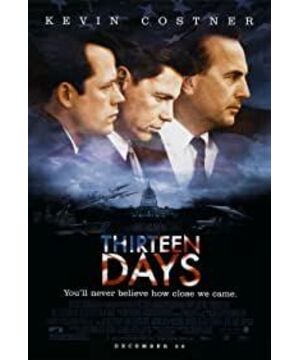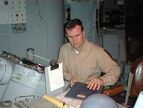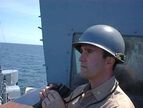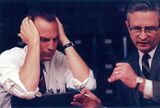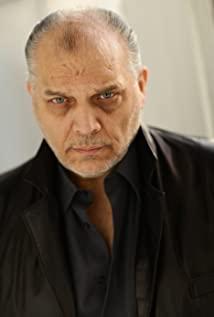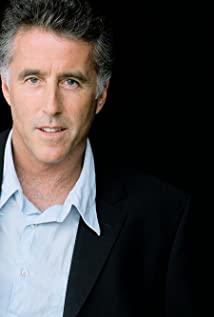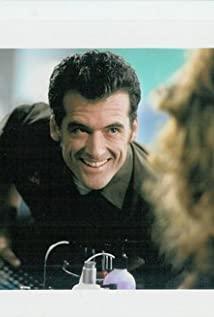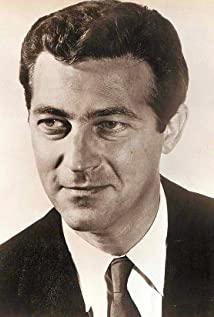original author Ernest May
**not** obtained translation permission
---
when I learned about Thirteen Days When a movie about the Cuban Missile Crisis in 1962 would mainly be narrated through the perspective of Kennedy's special assistant Kenneth O'Donnell, played by the famous movie star Kevin Costner, I was skeptical. Because in 1997, with the help of Philip Zelikow of the University of Virginia, when I transcribed and edited the audio tapes secretly recorded by President Kennedy into text, I found out, whether in these tapes or other related documents. In China, or in the memories of other think tanks at Kennedy's time, there is no evidence to prove that O'Donnell played an important or even eye-catching role in this crisis.
After Harvard University Press published our transcription into a book under the name _The Kennedy Tapes: Inside the White House During the Cuban Missile Crisis_, Beacon Communications purchased the film rights to the book, and the film’s director Roger Donaldson ran a special trip Came to Cambridge to meet us. We talked for a long time, and then Beacon sent me a movie script written by David Self. I am worried that what I will read in the script is "Kenny O'Donnell Saved the World".
However, the truth is not what I expected: O'Donnell only said once or twice in the script that he shouldn't have said, or did things that he wouldn't have done. O'Donnell has always been a good friend of John F. Kennedy and Robert F. Kennedy, and those tapes did prove that he participated in some of the meetings about this crisis. In a meeting, he raised an important question, which was then repeatedly raised by President Kennedy: What if the US Navy fleet encounters Soviet submarines at sea? In another meeting, in a tit-for-tat confrontation with Secretary of Defense Robert McNamara, O'Donnell showed contempt for General Leman Remnize.
The filmmakers here do more like _Dead Certainties_ by Simon Schama (a novel that connects and modifies a series of historical facts about a murder in the 18th century). (Speculative historical fiction), not Edmund Morris’s _Dutch_ (Morris inserts himself as a fictional character into this biography of President Reagan).
However, we still have to ask, why use O'Donnell's perspective as the main line? When I thought about what other ways the producer might have to allow the public to successfully appreciate the film, instead of just satisfying the niche market like the PBS documentary, Henry James put forward the principle of maintaining a single perspective on all events. Let me pause. However, it is difficult to adopt the perspective of President Kennedy; and if one of Kennedy’s think tanks is used-McNamara, Secretary of State Dean Rusk, National Security Advisor McGeorge Bundy, White House Advisor Ted Sorenson, United Nations Ambassador Adela Stevenson, or anyone else--this movie easily portrays John F. Kennedy as "the one who saves the world." O'
There are two ways to appreciate this movie: one is to treat it as a thriller, and the other is to treat it as a historical film. I think this movie is a successful thriller. Director Donaldson and starring Kevin Costner have a more successful collaboration in another thriller No Way Out, and this movie is even better than No Way Out. The 13-year-old daughter of my co-author Zelikow, who was the co-author of my film, stayed very nervous all the time while watching the movie with us. At the end of the movie, she said loudly to us: "I want to read your book!"
No wonder Harvard University Press will replace the back of our book with a poster for the movie Thirteen Days. The film’s copyright fees are paid in one lump sum, and we did not impose a commission on the box office, so whether the film is successful or not, in theory, my income and the publisher’s income will not be affected—unless the film promotes the sales of my book, and This is exactly why publishers want to change the back of the book.
But does this movie record history in its entirety? I think it has not reached a very rigorous level. The film failed to accurately show many historical details and several important factors. In most cases, these falsehoods are merely compromises that try to shorten the many ups and downs that occurred in the 13 days to less than two hours. However, in two respects, the film seriously distorted historical facts.
First of all, except for Robert Kennedy, the other advisers of President Kennedy were unsuccessful in shaping the image in the film, and they failed to agree with their true image in real life. National Security Advisor McGeorge Bundy is the most obvious example. In real life, he is a wise man no less than President Kennedy, but in the movie he is a timid and nervous wimp. Secretary of Defense McNamara and Kennedy's adviser Dean Acheson only left us some impressions through their looks.
Secondly, the film’s portrayal of military personnel is suspected of misleading the audience. Indeed, there was great pressure between the president and the military at that time. The military leaders unanimously believed that Cuba should be bombed and invaded immediately, and they tried to dissuade President Kennedy from delaying military operations, using blockades and using secret diplomatic methods. The plan to force the Soviet General Secretary Khrushchev to withdraw the missiles from Cuba. But what is described in the movie is that the military is trying to force President Kennedy to have no choice but to accept their plan. This is not just an injustice to the military, but also a misunderstanding of the professional beliefs of the American military.
There are other reasonable questions about this movie, such as none of the scenes set in Havana or Moscow. The movie also did not try to explain Khrushchev's decision to secretly ship the missile to Cuba, and the specific reasons for the final withdrawal. Except for the frightened young Soviet female Communists that O'Donnell saw in the Soviet embassy, the only Soviets who appeared in the film were diplomats and KGB staff who dealt with the United States. Similarly, the ordinary Americans who officially appeared in the film are only O'Donnell's wives and children, and their anxiety will represent the overall feelings of all Americans about this crisis. My personal judgment is that these trade-offs are not necessarily inappropriate: the Kremlin scenes will distract the audience and raise some questions that the film cannot answer directly. But others may think that these deficiencies make the film lack realism.
For me personally, the film’s lack of faithfulness to history is not so important for its correct performance of the three core elements of the missile crisis. The first point is that this crisis is a critical moment concerning the life and death of mankind. This film successfully conveyed to the audience the message that this is the closest moment to human extinction, and the expression effect exceeds all related documentaries and previous movies of the same theme. It accurately reproduces the restrained but very fierce debate on the secret tape, and it is interspersed with very real missile bases in the Cuban jungle under rapid construction and U2 reconnaissance planes passing them at low altitudes, U.S. bombers, aircraft carriers and Missiles ready to be launched. Audiences who know this is a real historical event will have a more specific and profound experience of the possible consequences of the Cold War when they leave the cinema.
Secondly, compared with other historical data, the film Thirteen Days makes it easier for us to understand the dilemma that President Kennedy faced at the time. Americans like to be solipsistic when writing history, as if all the good and all the bad came from the United States. Therefore, many historical works and even memoirs believe that the crisis began with the US government’s hostility to the Cuban Castro regime, or from the strong power of the Kennedy brothers, so it was derived that this crisis could have been easily adopted by a policy of gentleness towards Cuba. Either soften the diplomatic methods of the Kennedy administration, or accept the Soviet Union’s deployment of missiles in Cuba as a countermeasure against NATO’s deployment of missiles in Turkey and Italy to resolve such erroneous conclusions.
This film truly reproduces the facts shown in the tape: the crisis has little to do with Cuba, but is more closely related to the promise of protecting 2.5 million people in West Germany that Kennedy took over. Kennedy had no reason to believe that the Berlin Wall, established in 1961, successfully eliminated the communist regime in the east from the desire to throw the people of West Germany into their already overcrowded prisons. Quite the contrary: the Berlin Wall itself is one of many evidence that the East German regime and the Soviet government behind them have gradually lost patience. Khrushchev had clearly warned Kennedy that he intended to solve the Berlin problem later in 1962.
The only guarantee for the people of West Germany is that once the Soviet Union invades, the United States will use nuclear weapons to fight back. Anything that reduces the credibility of this deterrence may force the President of the United States to abandon West Germany or trigger a global nuclear war. This is why Kennedy is absolutely unwilling to make any concessions on the Cuban missile. This film embodies this very accurately, which is not possible in many historical documents.
In the end, this film successfully demonstrated that the President of the United States needs to have a very high IQ and be able to keep a cool head at critical moments. For many years, movies have always portrayed the president and his decision-making circle as insignificant roles, or the White House as a weak institution surrounded by evil and secret organizations. Bruce Greenwood’s interpretation of the role of the president in this movie is not a Camelot knight, but a man who realizes that his job is very difficult, and that everything he says and does can have huge consequences. Influence. The movie Thirteen days shows that who is the president is a very serious and important matter.
This movie cannot represent completely true history. Anyone who watches this movie should not believe that what he saw on the screen has actually happened. But this movie is close enough to history, so if it has achieved great success in the box office and subsequent DVD market, I will definitely not feel dissatisfied, because with it, young people in the United States and the world will know that they have What we see is probably the closest human beings have ever been to extinction.
View more about Thirteen Days reviews


